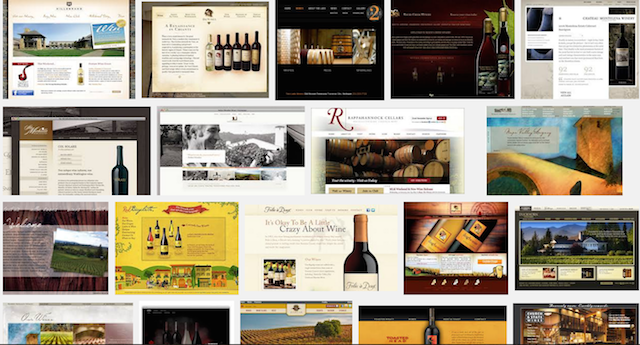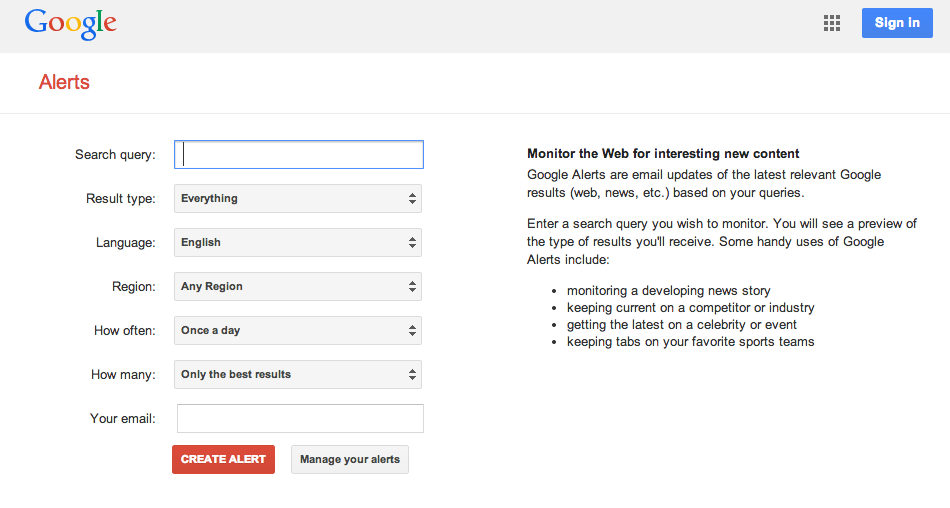Every business makes online mistakes, but for some reason wineries are guilty the most. Judging from responses to my Top Annoying Things Winemakers Do post, I get the sense that winemakers and family wineries feel they are exempt from needing to market online, that the hard work of making wine is enough, that they need do no more. Someone even told me that winemakers in France don’t even know how to use email because they are so busy making wine.
I say this is just self-indulgent BS. Wineries, like any other business, can’t think that if they simply bottle the wine, people will come and buy it. That only works for baseball fields.
With hundreds of wineries starting up every year, there is more and more great juice to drink, and a more crowded market to stand out in. Marketing yourself online is only one part of a marketing plan, but a very essential one. You could be sleeping while potential customers are finding your wines online. Don’t blow the opportunity to sell to them.
Here are the top online mistakes wineries (and other businesses) should avoid making.
Not Setting Google Alerts
Google Alerts is an incredibly handy free tool that allows you to set your name, your wineries name, specific wine names and any information about you or your region, and every time one of those words is detected by search spiders, it will send you an alert via email. How easy is that?
I use this service like a Reader tool, having set it to “wordpress”, “wine”, “blogging” etc, as well as my name “Mari Kane”. When you get an alert for your winery and click on the link to the site, you’ll quickly learn what someone is writing about you. It’s like having spies working for you.
Failing to Comment
Once a winery has Google Alerts set to their name, they have no excuse not to comment on blogs in which they are mentioned. Because now they know when someone is talking about them.
Commenting on blogs that mention you or your wine is a great chance to do three things:
- Show you care enough to engage, thus promoting the winery’s image
- Correct any inaccuracies before they have time to propagate
- Expand on any praise heaped on you and to educate readers more.
Basically, ignoring posts about you is not only rude, it’s like turning away free publicity.
Withholding Personal Information on the Web Site
You are not just selling wine, you’re selling your story. Tell one. Customers want to know who is behind the wine label, how you got your start, what insanity drive you to make wine. It makes you seem more human than a corporation, like people customers might want to have a drink with.
People want to see captioned pictures of you and your crew so that if they show up in your tasting room they can recognize you and say hi. If you don’t have a friendly face on your site and in social media you look like you’re hiding something. That’s why it’s one of the biggest of online mistakes. It makes people wonder.
No Media Section on the Web Site
Wine writers like me visit winery sites as much for research as anything else, and it’s so frustrating to have to hunt down information across numerous pages.
To make it easier for writers to write about you, every site should have pages that compile media clips about the winery, technical sheet about each wine, high resolution logos, labels and photos of the bottles. Not having those resources readily accessible increases the chance that writers may give up and use some crappy image we pull off Google Images.
Ignoring Twitter
As long as you’ve got your website, the only other social media platform a winery needs is Twitter. This is the site that helped launched a handful of revolutions as well as informing the world on umpteen disasters. Tweets are used as newsroom fodder, its data mined for trend tracking. Ignore Twitter at your peril.
With the use of some well-placed hashtags, millions can follow your tweets without being your followers. If someone mentions you with the “@“ symbol, you will get a notification from Twitter. If someone retweets your tweet, you’ll get a notification. When used correctly, Twitter can be an easy, accessible way to be social online.
But that’s not all
Obviously, there are more online mistakes wineries and other businesses make but these are the biggies. I know because I visit a lot of web sites.
But then, how easy is it to stop making these mistakes? By fixing them, you’ll look more transparent and more accessible, and guess what? Customers will love you for it.
Any excuses?


